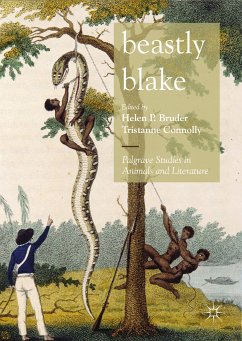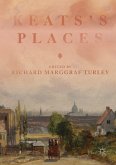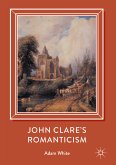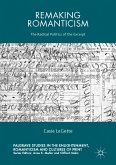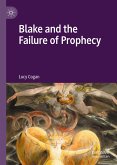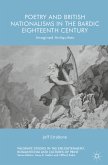Blake's 'Human Form Divine' has long commanded the spotlight. Beastly Blake shifts focus to the non-human creatures who populate Blake's poetry and designs. The author of 'The Tyger' and 'The Lamb' was equally struck by the 'beastliness' and the beauty of the animal kingdom, the utter otherness of animal subjectivity and the meaningful relationships between humans and other creatures. 'Conversing with the Animal forms of wisdom night & day', Blake fathomed how much they have to teach us about creation and eternity. This collection ranges from real animals in Blake's surroundings, to symbolic creatures in his mythology, to animal presences in his illustrations of Virgil, Dante, Hayley, and Stedman. It makes a third to follow Queer Blake and Sexy Blake in irreverently illuminating blind spots in Blake criticism. Beastly Blake will reward lovers of Blake's writing and visual art, as well as those interested in Romanticism and animal studies.
Dieser Download kann aus rechtlichen Gründen nur mit Rechnungsadresse in A, B, BG, CY, CZ, D, DK, EW, E, FIN, F, GR, HR, H, IRL, I, LT, L, LR, M, NL, PL, P, R, S, SLO, SK ausgeliefert werden.

